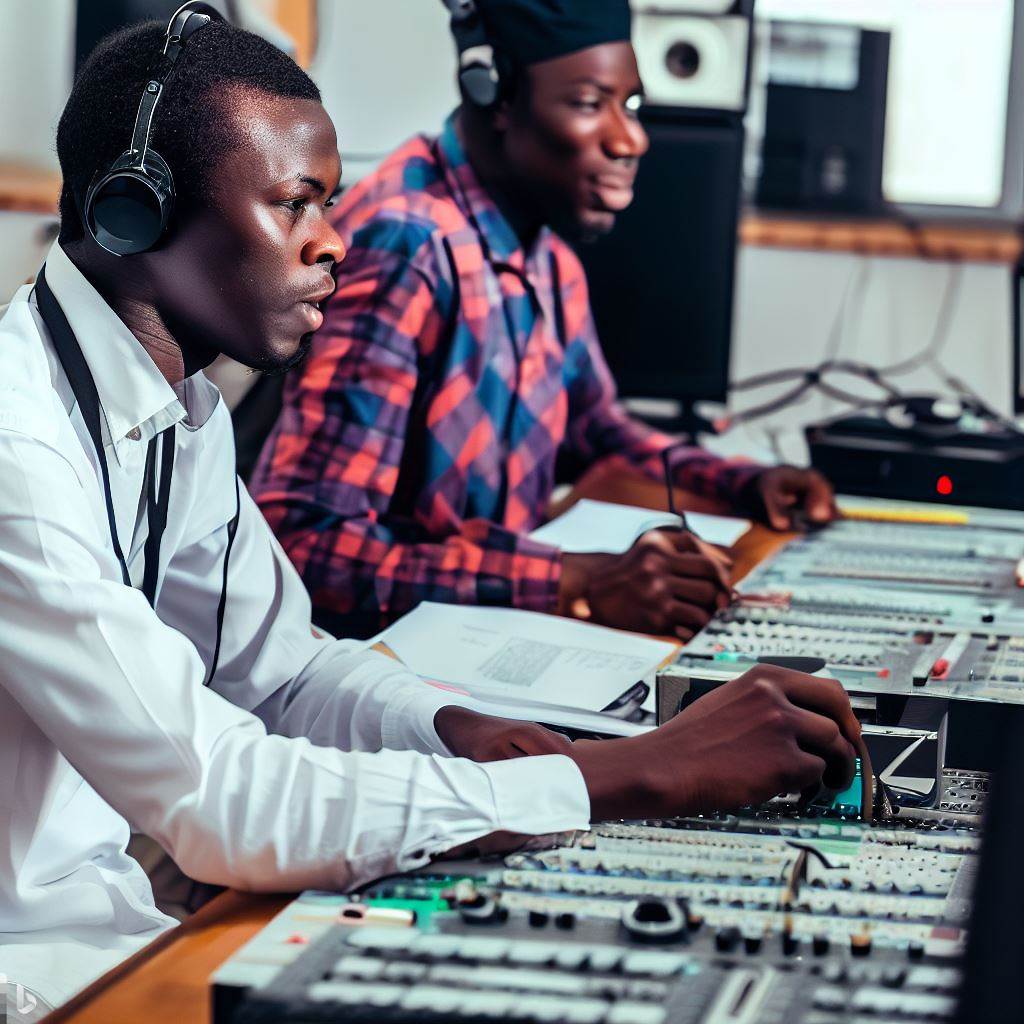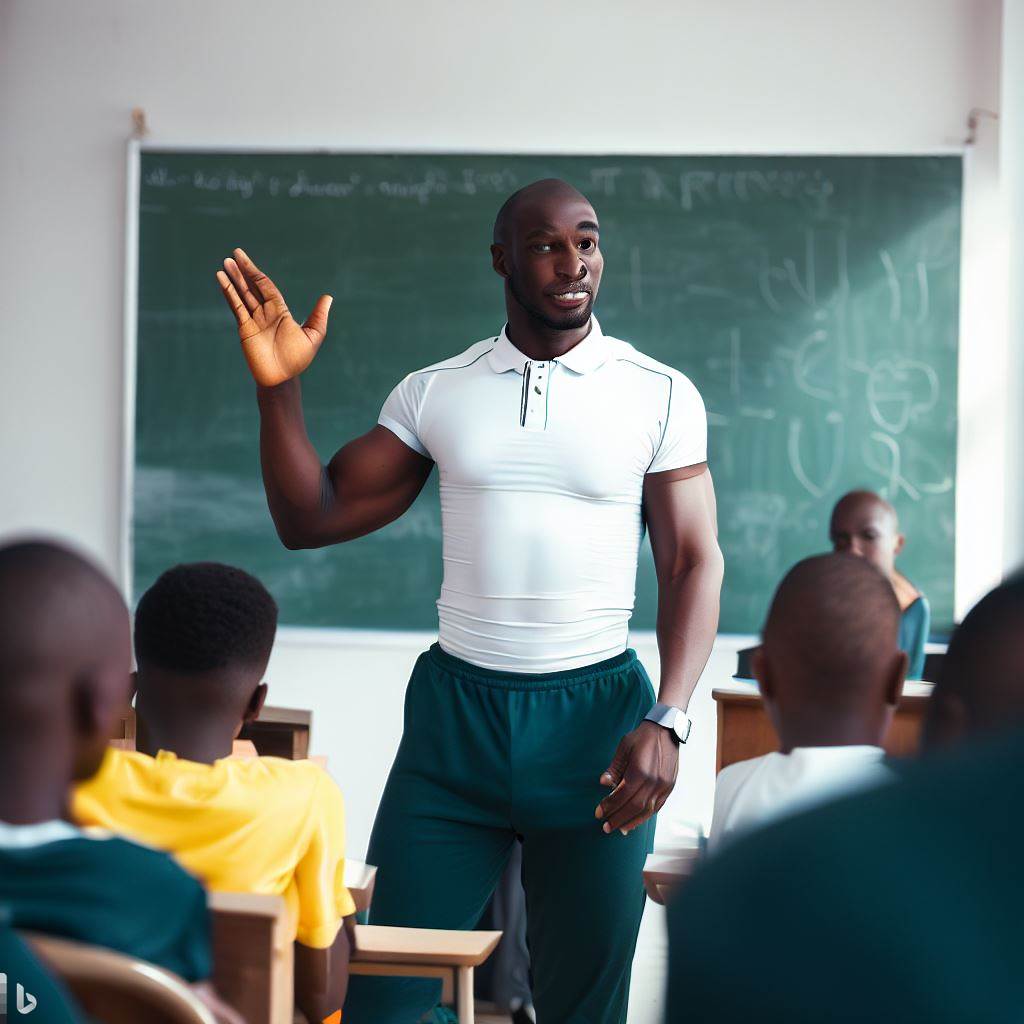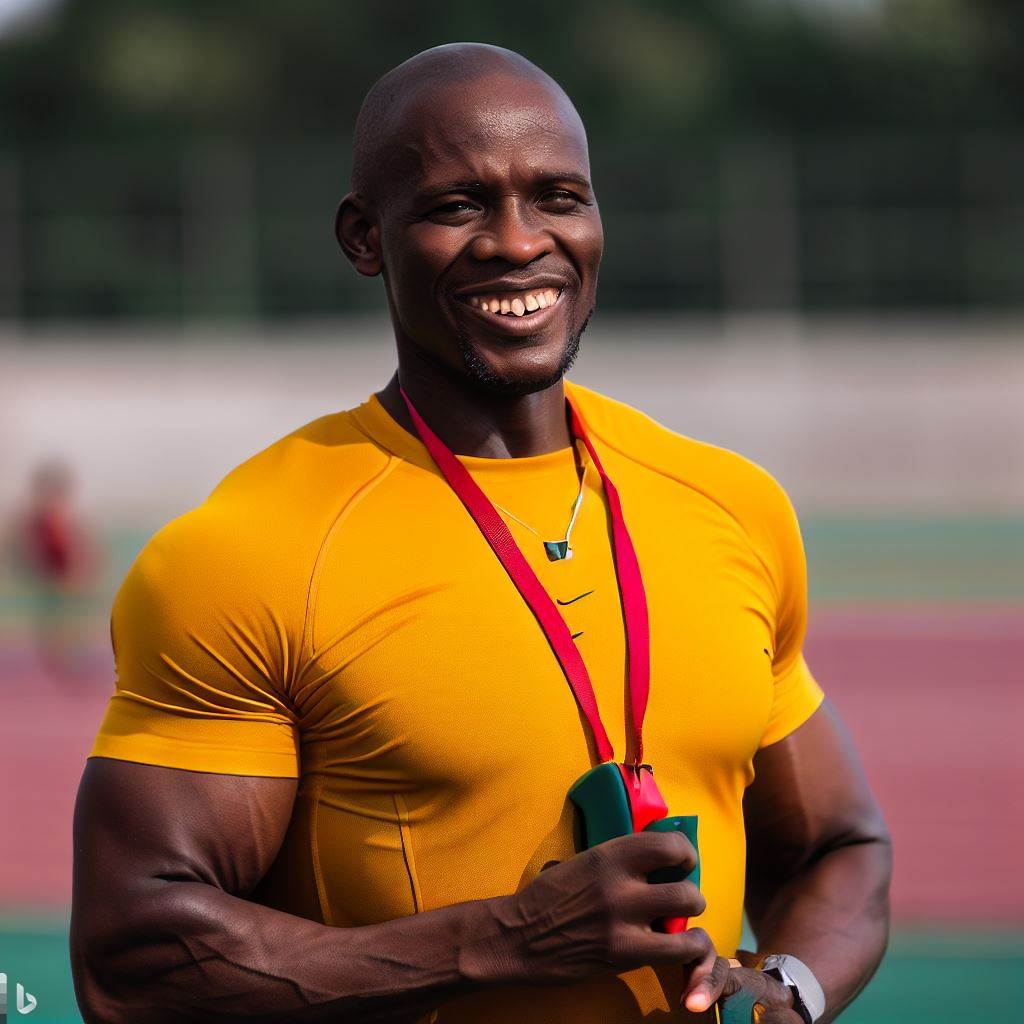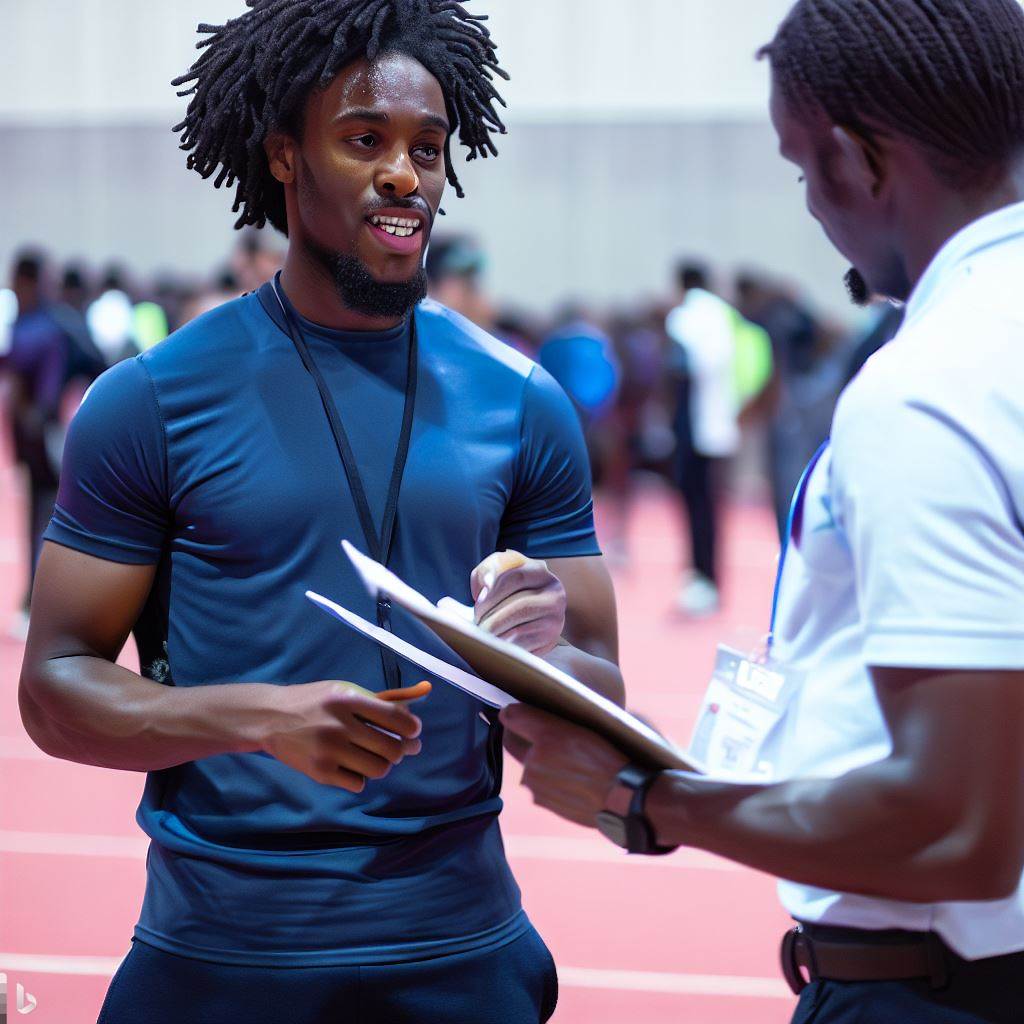Introduction
Understanding the salary of a PE instructor in Nigeria is crucial for several reasons. Whether you’re considering a career in physical education or employing one,
Here’s why you need to know:
- Career Decision: If you aspire to become a PE instructor, the potential salary will help you make an informed career choice.
- Financial Planning: Understanding salary expectations aids in effective financial planning, allowing you to set realistic goals.
- Negotiation: For experienced PE instructors or employers, this knowledge is vital for salary negotiation during job interviews.
- Market Insights: It offers insights into the competitive landscape, helping institutions attract and retain skilled professionals.
- Fair Compensation: Knowing salary benchmarks ensures PE instructors receive fair compensation for their valuable contributions.
In this article, we’ll delve into the specifics of PE instructor salaries in Nigeria, knowing all about what it entails
Overview of Physical Education in Nigeria
In Nigeria, physical education plays a crucial role in the overall education system, promoting the physical, mental, and social well-being.
Here are some key points highlighting the significance of physical education in the development of students:
- Considering the crucial role physical education plays in the holistic development of students, it is essential to recognize and value the contributions of Physical Education (PE) instructors in Nigeria.
- PE instructors, also known as physical education teachers or sports educators, are responsible for imparting knowledge, skills, and values through physical education classes.
- Their primary role is to design and deliver well-structured PE lessons that cater to the diverse needs and abilities of students.
- PE instructors create a positive and inclusive learning environment, encouraging students to participate in various physical activities and sports.
- They facilitate the development of fundamental movement skills, teach proper techniques and rules of different sports, and enhance students’ physical fitness levels.
- Furthermore, PE instructors assess students’ progress, provide constructive feedback, and encourage them to set personal goals for their physical development.
- Ensuring safety during physical activities and promoting lifelong fitness habits are also crucial aspects of a PE instructor’s responsibilities.
- In Nigeria, the salary of a PE instructor can vary depending on several factors such as qualifications, years of experience, location, and the educational institution they are employed in.
On average, a PE instructor in Nigeria can expect to earn a monthly salary range of 150,000 Naira to 300,000 Naira.
However, it is important to note that these figures are estimates, and salaries may vary significantly.
Considering the importance of physical education in Nigeria’s education system, it is essential to value and compensate PE instructors adequately.
Competitive salaries can attract skilled and passionate educators who can contribute effectively to the holistic development of students.
Read: Physical Education Careers in Nigeria: A Beginner’s Guide
Qualifications and Responsibilities of a PE Instructor
A. Educational Qualifications and Certifications
- To become a PE instructor in Nigeria, the minimum educational requirement is a bachelor’s degree in Physical Education.
- In addition to a degree, aspiring PE instructors must also obtain a teaching certification from a recognized institution.
- It is highly recommended for PE instructors to pursue further education in specialized areas like sports science or exercise physiology.
- Continuing education and professional development courses are also beneficial for PE instructors to enhance their knowledge and skills.
- Prior experience in teaching or coaching in a related field is an advantage for aspiring PE instructors.
B. Responsibilities and Duties
- A PE instructor in Nigeria is responsible for planning and delivering physical education lessons to students.
- They must ensure that students participate in various physical activities that promote fitness, health, and overall well-being.
- PE instructors play a crucial role in assessing students’ physical abilities and providing individualized instruction when needed.
- They should create a positive and inclusive learning environment that encourages students to develop their physical skills and enjoy physical activities.
- PE instructors must also promote safety and enforce rules and regulations during physical education classes and extracurricular activities.
- In addition to teaching, PE instructors may have administrative duties, such as maintaining equipment, managing inventory, and organizing sports events.
- They are expected to collaborate with other teachers, parents, and school administrators to ensure a well-rounded physical education program.
- PE instructors should stay updated with the latest research, guidelines, and best practices in physical education to provide quality instruction.
- They may participate in professional organizations or attend workshops and conferences to network and exchange ideas with peers in the field.
- PE instructors may also contribute to the overall school community by volunteering for extracurricular activities or coaching sports teams.
Read: Trends and Innovations in Athletic Training in Nigeria
Factors Affecting Salary of a PE Instructor in Nigeria
In order to fully understand the salary expectations for a PE Instructor in Nigeria, it is important to consider the various factors that influence their earnings.
These factors include the level of education and experience, the location and type of institution, additional certifications and skills, as well as the demand and supply dynamics within the industry.
A. Level of education and experience
One of the key factors that significantly impacts the salary of a PE Instructor in Nigeria is their level of education and experience.
Generally, individuals with higher levels of education and more years of experience tend to earn higher salaries.
Those with advanced degrees or specialized certifications often have an advantage when it comes to negotiating their pay.
B. Location and type of institution
The geographical location and type of institution also play a significant role in determining the salary of a PE Instructor.
Salaries may vary depending on whether the instructor works in a rural or urban area, as well as the type of institution they are employed in.
PE Instructors working in prestigious private schools or international institutions tend to earn higher salaries compared to those working in public schools.
C. Additional certifications and skills
PE Instructors with additional certifications and skills have a higher chance of securing better-paying opportunities.
Certifications in areas such as sports coaching, fitness training, or specialized exercise programs can enhance their earning potential.
Instructors who possess multiple skills and can offer a wider range of services may also command higher salaries.
D. Demand and supply dynamics
The demand and supply dynamics within the industry also have a significant impact on the salary of a PE Instructor.
If there is a higher demand for qualified PE Instructors and a limited supply of professionals, salaries are likely to be more competitive.
However, if there is an oversupply of PE Instructors in the job market, it may lead to lower salary levels.
Most importantly, the salary of a PE Instructor in Nigeria is influenced by various factors.
These include the instructor’s level of education and experience, the location and type of institution they work in, the certifications and skills they possess, as well as the demand and supply dynamics within the industry.
By considering these factors, both aspiring and current PE Instructors can have a better understanding of what to expect in terms of their salary.
Read: Job Interview Tips for Sports Information Director Aspirants
Average Salary Range for PE Instructors in Nigeria
When it comes to the salary range of Physical Education (PE) instructors in Nigeria, several factors come into play.
These factors often result in variations in the amount these professionals earn.
In this section, we will provide an overview of the average salary range for PE instructors in Nigeria and discuss the factors that can affect their earnings.
A. Overview of Salary Range
The salary range for PE instructors in Nigeria generally varies depending on the level of experience and qualifications.
On average, PE instructors in Nigeria can expect to earn between ₦500,000 and ₦1,500,000 per annum.
B. Factors Affecting Salary
- Location: The location of the school or institution where the PE instructor works can significantly impact their salary. In urban areas like Lagos, Abuja, and Port Harcourt, salaries tend to be higher compared to rural areas.
- Education and Qualifications: PE instructors with higher qualifications, such as a master’s degree or relevant certifications, are likely to earn more than those with just a bachelor’s degree or lower qualifications.
- Years of Experience: The number of years a PE instructor has spent in the field can also affect their salary. As they gain more experience, their earning potential tends to increase.
- Type of Institution: PE instructors working in prestigious private schools or international schools may earn higher salaries compared to those in government schools or less renowned institutions.
- Additional Responsibilities: PE instructors who take on extra responsibilities such as coaching sports teams or organizing extracurricular activities may receive additional allowances or bonuses.
- Negotiation Skills: Some PE instructors negotiate for higher salaries during the hiring process or when renegotiating their contracts, which can lead to higher earnings.
C. Salary Tier Breakdown
Based on the factors mentioned above, here is a breakdown of the salary tiers for PE instructors in Nigeria:
- Entry-Level PE Instructors: Those with limited or no experience can expect to earn between ₦500,000 and ₦800,000 per annum.
- Mid-Level PE Instructors: With a few years of experience, PE instructors can earn between ₦800,000 and ₦1,200,000 per annum.
- Senior-Level PE Instructors: Those with extensive experience and higher qualifications can earn upwards of ₦1,200,000 per annum.
D. Benefits and Perks
In addition to their basic salary, PE instructors in Nigeria may receive various benefits and perks, including health insurance, housing allowances, transportation allowances, and annual leave.
D. Strategies for Salary Growth
To increase their earning potential, PE instructors can consider the following strategies:
- Continuous Professional Development: Attending workshops, seminars, and obtaining higher qualifications can enhance their skills, making them more valuable and potentially leading to higher salaries.
- Networking and Collaboration: Building professional networks and collaborating with other instructors can provide opportunities for career growth and higher-paying positions.
- Performance Excellence: Consistently demonstrating outstanding performance in teaching and extracurricular activities can lead to recognition, promotions, and salary increments.
In general, the average salary range for PE instructors in Nigeria is between ₦500,000 and ₦1,500,000 per annum, depending on factors such as location, education, experience, institution type, and negotiation skills.
PE instructors can strive for salary growth through continuous professional development, networking, and exceptional performance.
Read: Rural vs Urban Athletic Training in Nigeria: A Comparison
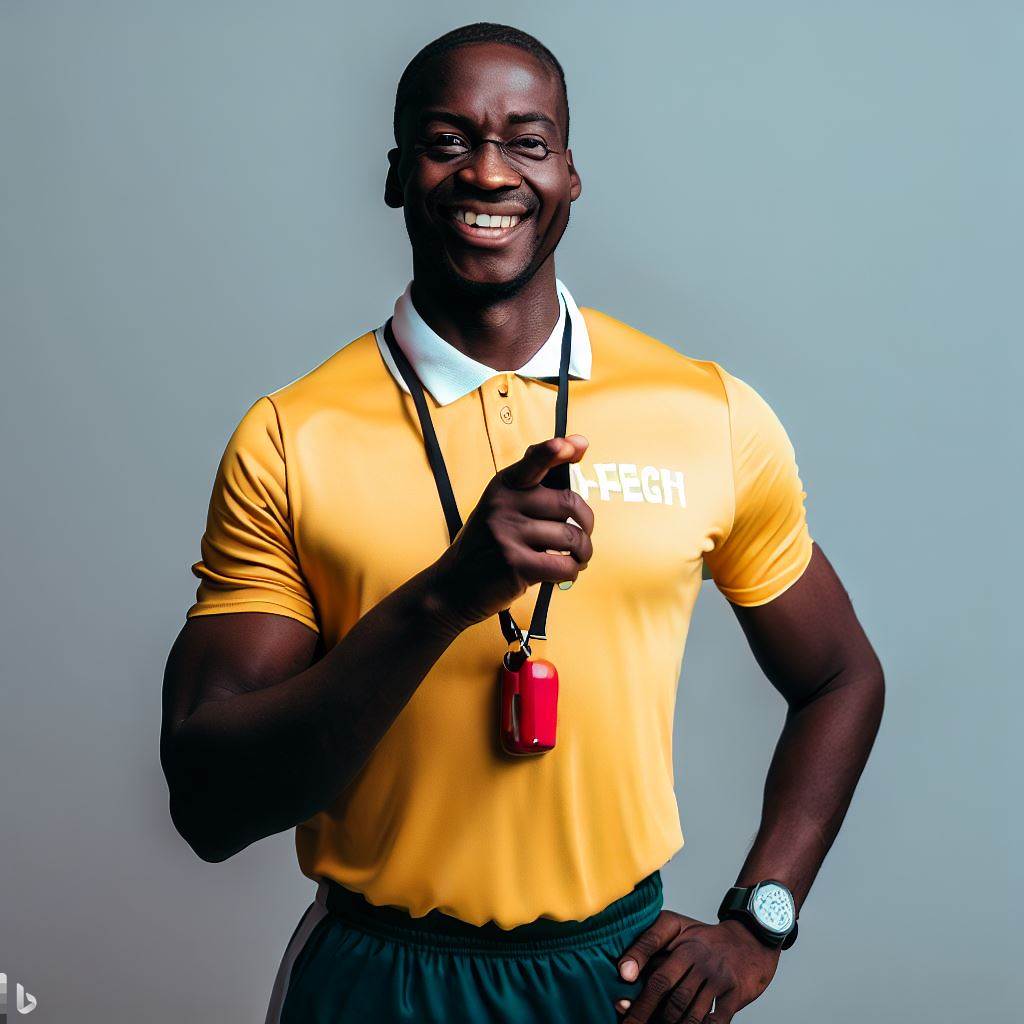
Benefits and Perks
When it comes to the salary of a PE instructor in Nigeria, there are additional benefits and perks that can come along with the role.
In this section, we will highlight these benefits and perks, and discuss the possibilities of career advancement and professional growth.
A. Benefits and Perks of Being a PE Instructor
- Health and Fitness Benefits: As a PE instructor, you will be actively engaged in physical activity throughout the day, which can have a positive impact on your own health and fitness.
- Job Satisfaction: Many PE instructors find great satisfaction in helping others achieve their fitness goals and lead healthier lifestyles.
- Flexibility: Depending on your work setting, as a PE instructor, you may have more flexible working hours compared to other professions.
- Summers Off: In educational institutions, PE instructors often enjoy summers off, providing them with extended time for personal pursuits or additional professional development.
- Competitive Salaries: While the salary of a PE instructor may not be as high as some other professions, it is usually competitive, considering the nature of the work.
B. Career Advancement and Professional Growth Opportunities
- Specialization in a Specific Sport: By specializing in a specific sport or physical activity, you can become a sought-after instructor for that particular discipline.
- Coaching Roles: Many PE instructors take up coaching roles in schools or sports clubs, which can lead to career advancement and increased responsibilities.
- Leadership Positions: With experience and additional qualifications, PE instructors can move into leadership positions such as department heads or coordinators.
- Higher Education: Pursuing higher education, such as a master’s degree or a PhD in physical education or a related field, can open up opportunities in research or academia.
- Entrepreneurship: Some PE instructors choose to start their own fitness centers, sports academies, or consultancy services, leveraging their expertise and experience.
- International Opportunities: PE instructors may have the chance to work in international schools or organizations, broadening their horizons and gaining diverse experiences.
C. Continuing Professional Development
As a PE instructor, it is important to stay updated with the latest advancements in the field.
Here are some ways to invest in your professional growth:
- Attend conferences, workshops, and seminars related to physical education and sports.
- Participate in online courses or webinars to gain new knowledge and skills.
- Join professional organizations or associations for networking opportunities and access to resources.
- Stay updated with research and literature in the field by reading journals and publications.
- Seek mentorship or guidance from experienced educators or coaches.
By actively investing in your professional development, you can enhance your expertise and stay relevant in a rapidly evolving field.
In review, being a PE instructor in Nigeria comes with additional benefits and perks such as health and fitness benefits, job satisfaction, flexibility, and competitive salaries.
Moreover, there are opportunities for career advancement and professional growth through specialization, coaching roles, leadership positions, higher education, entrepreneurship, and international opportunities.
Continuously investing in your professional development is crucial for staying ahead in the field.
Challenges and Outlook for PE Instructors in Nigeria
In Nigeria, PE instructors face several challenges in their profession. These challenges can impact their job prospects and salary trends.
Here, we address some of the key challenges faced by PE instructors in the country:
A. Lack of recognition and support
- PE instructors often struggle with a lack of recognition for their profession in Nigeria.
- This lack of recognition leads to minimal support from educational institutions and the government.
- Without adequate support, PE instructors find it challenging to enrich their teaching methods and improve students’ outcomes.
B. Limited resources and facilities
- PE instructors in Nigeria often face the challenge of limited resources and facilities.
- Many schools lack proper sports equipment, fields, and facilities necessary for effective physical education.
- Due to limited resources, PE instructors have to work with what they have, making it difficult to provide quality education.
C. Cultural perception and stereotypes
- In Nigerian society, there is a prevalent perception that physical education is not as important as academic subjects.
- PE instructors face the challenge of breaking stereotypes and educating parents and students about the importance of physical education.
- Changing cultural perception is crucial in gaining support and resources for the profession.
D. Inadequate professional development opportunities
- PE instructors in Nigeria often struggle with limited opportunities for professional development.
- There is a lack of workshops, conferences, and training programs specific to the needs of PE instructors.
- Without access to continuous professional development, PE instructors find it challenging to enhance their teaching skills and keep up with evolving best practices.
Despite these challenges, there is an optimistic outlook for PE instructors in Nigeria, both in terms of job prospects and salary trends.
Here are some positive factors to consider:
Growing emphasis on holistic education
- As education systems worldwide recognize the importance of holistic education, PE instructors are gaining more significance.
- There is a growing emphasis on promoting physical fitness, sports, and overall well-being among students.
- This shift in educational focus opens up opportunities for PE instructors in Nigeria.
Increased investment in sports infrastructure
- With Nigeria’s commitment to sports development, there is an increased investment in sports infrastructure across the country.
- New sports facilities and stadiums are being built, creating a demand for qualified PE instructors to teach and train athletes.
- This investment improves the job prospects for PE instructors who can work in these new facilities.
Rising health consciousness
- There is a growing awareness of the importance of physical fitness and healthy lifestyles in Nigerian society.
- This shift towards health consciousness creates a greater demand for physical education and qualified PE instructors.
- PE instructors who can adapt to this demand and provide innovative fitness programs can expect better job prospects and potentially higher salaries.
Lastly, while PE instructors in Nigeria face challenges such as lack of recognition, limited resources, and cultural perception, there are positive factors shaping their profession’s outlook.
Growing emphasis on holistic education, increased investment in sports infrastructure, and rising health consciousness create opportunities for PE instructors in terms of job prospects and potentially improved salary trends.
Conclusion
Being a PE instructor in Nigeria can be a fulfilling career choice, but one should have realistic salary expectations.
As discussed in this article, the salary of a PE instructor in Nigeria can vary based on several factors.
While some may earn higher salaries in private schools or as coaches for elite teams, others may earn lower salaries in public schools and community centers.
It is important for individuals interested in pursuing a career in physical education to be passionate about the field and be prepared to work hard.
By focusing on the joy of teaching and making a positive impact on the lives of students, the salary aspect can become less significant.
So, if you have a passion for sports and fitness and enjoy working with young people, consider pursuing a career in physical education in Nigeria.
Although the salary may not be as high as in some other professions, rewards of making a difference in students’ lives can be priceless.
So, go ahead and pursue your passion while having realistic salary expectations, and contribute to the development of physical education in Nigeria!

